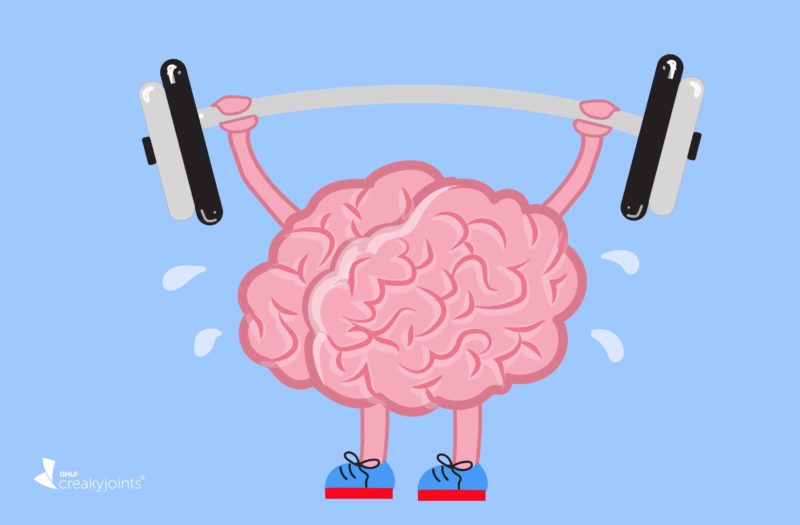When you have a chronic, degenerative joint condition like rheumatoid arthritis (RA), the idea of moving any more than necessary might seem pretty unappealing. But the truth is that regular physical activity is good for your joints, and — bonus! — new research shows that it might also protect your mind.
People with RA, unfortunately, are more apt than others to develop cognitive impairment, probably due to increased levels of inflammation that can impact blood flow to the brain as well as the brain itself. The upshot is that there’s something you can do about it.
According to new research, RA patients who meet the government-recommended guideline of at least 150 minutes of moderate activity (or 75 minutes of vigorous activity) per week are substantially less likely to report memory and concentration problems.
To conduct the study, which was published in the journal ACR Open Rheumatology, researchers reviewed data on more than 1,200 people who are part of the ongoing Brigham and Women’s Rheumatoid Arthritis Sequential Study (BRASS). Participants in the study are seen by a doctor at least once a year and fill out surveys that include questions about memory, concentration, and word-finding difficulties.
According to their findings, only 13 percent of participants were getting the recommended amount of exercise each week, but being part of that small group had major benefits: Those who were active were far less likely to report cognitive problems over a 10-year period.
“Regular physical activity has been shown to decrease levels of inflammatory markers such as CRP, interleukin (IL)‐6, and TNF‐alpha in healthy individuals, and IL‐6 and CRP have been shown to increase dementia incidence in mid‐life,” the authors wrote. “This may explain, in part, how RA inflammation may contribute to worsened cognition and exercise may ameliorate this effect.”
If you have RA and don’t exercise regularly, talk to your doctor about how to safely increase your level of activity. Stretching, yoga, and water aerobics tend to be good low-impact activities. Strengthening your muscles and improving your flexibility will take some stress off your joints and should help you feel better — and likely think more clearly — for years to come.
Keep Reading
Meade T, et al. Cognitive Impairment in Rheumatoid Arthritis: A Systematic Review. Arthritis Care & Research. 2018. doi: 10.1002/acr.23243.
Shadick NA, et al. The Impact of Exercise, Lifestyle, and Clinical Factors on Perceived Cognitive Function in Patients with Rheumatoid Arthritis: Results from a Prospective Cohort Study. ACR Open Rheumatology. 2019. doi: 10.1002/acr2.11088.
Tangestani Fard M, et al. A Review and Hypothesized Model of the Mechanisms That Underpin the Relationship Between Inflammation and Cognition in the Elderly. Frontiers in Aging Neuroscience. doi: 10.3389/fnagi.2019.00056.






